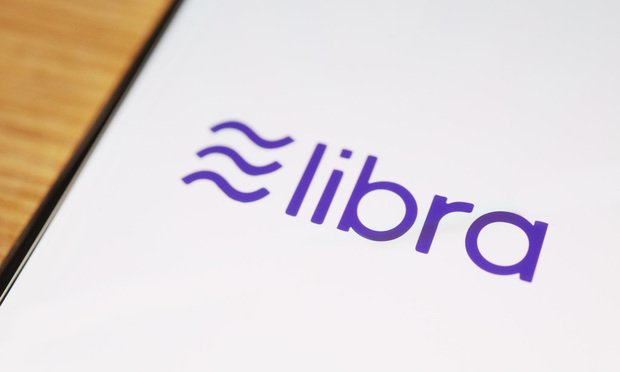 Within the next few years, banks could lose billions of payment-based revenue.Motley Fool Staff Sep 23, 2019 at 5:00AM
Within the next few years, banks could lose billions of payment-based revenue.Motley Fool Staff Sep 23, 2019 at 5:00AM
According to a recent report, banks could lose up to $280 billion in revenue from payment processing services.The reason? Fintech start-ups like Square ( NYSE:SQ ) , PayPal ( NASDAQ:PYPL ) , and others disrupting the industry.
In this Industry Focus: Financials clip, host Jason Moser and Fool.com contributor Matt Frankel, CFP, discuss the implications for the financial industry, and what investors should know.
To catch full episodes of all The Motley Fool’s free podcasts, check out our podcast center .To get started investing, check out our quick-start guide to investing in stocks .
A full transcript follows the video.
This video was recorded on Sept.16, 2019.
Jason Moser: First thing we wanted to get to this week, something we were reading this morning, actually — a report from Accenture recently, talking about this massive land grab out there in the form of $280 billion in banking payments revenues.They’re talking about start-ups in the fintech world slated to grab much of that money by 2025.The big banks are going to be suffering from perhaps a little complacency, perhaps a little bit of a failure to fully adopt technology into their business models.
There’s a lot to unpack here with this story.This is something where it’s seemingly good for payments companies.You wonder, can the banks pivot? There’s a theme in here talking about, essentially, the payments space, you’ll get to this point at some point years from now where payments are essentially free.If that’s the case, what does that mean for some of these fintech start-ups like Square and PayPal and whatnot?
Matt, let’s kick it off here first and foremost by talking about this opportunity that’s coming up for these start-ups vs.
the big banks.What were a couple of your key takeaways after reading the report?
Matt Frankel: One thing to point out.
Even though, yes, the report says that banks are going to lose up to $280 billion in payments revenue per year by 2025; you have to remember, that doesn’t necessarily mean that these fintechs like Square and PayPal are going to gain $280 billion.We’re talking about a trend toward lower payments and things like that.Maybe the fintechs will get $50 billion in revenue, and the banks will lose out on $280 billion, because the payments companies are doing it cheaper.
Moser: Yeah, we’ve been talking about that a lot.To be fair, for the longest time, we’ve been talking about, that is one of the advantages that your Squares and PayPals and Stripes of the world have.
They’re making these payments cheaper than they’ve historically been.
Frankel: Right.We’re not exactly saying that Square and PayPal are going to have $280 billion in revenue, although that would certainly be very nice.
Moser: I wouldn’t complain.
Frankel: Right? But, no, it’s definitely a net positive.
The global payments business is expected to swell to about $2 trillion by that point.
This is about 15% of the total.We’re not saying that big banks are going to be bankrupt, or American Express is going to go out of business because of disruptive payment technology.
The other big thing is, yes, payments are trending toward free; they’re never actually going to get to free.Even the payment methods that people think are free — like, say, Bitcoin today — really cost a decent amount of money.It’s usually cheaper than using a credit card or sending an international wire transfer or something like that, but these aren’t exactly free.It’s not just the payments revenue that these payment companies are getting.We’ve discussed a few times that Square really makes nothing off of the transfers on its Cash app.It’s the other things that it could do with this stream of business and customer base.
We’ll talk about one of them in a minute.A little teaser there.There’s a lot of big implications for these fintech companies beyond just payments revenue itself.
Moser: Yeah.Like you, I’m thinking about this statement of payments getting to free.
They’re never going to be truly free.You’re trying to whittle those costs down as much as you can, but there is a cost of doing business always.For our purposes here as investors, in this lifetime, you look at some of these businesses like Square and PayPal, it really shows you the importance of what they’re building beyond just being some type of company that gets a scrape off of payments transactions.It’s the importance of these businesses building out attractive two-sided networks, where it focuses on buyers and sellers, but also more diversified business models.
Square today, yeah, the lion’s share of its revenue comes from transaction fees; but you’re talking about a business here with a transactions side of the business, a subscriptions and services side of the business, you’ve got Square Capital — they’ve got a lot of different ways they can go.They’re building out software ecosystems to help businesses run their businesses.Whether you’re in retail or restaurants, these companies are building out technology platforms that help these businesses run their everyday operations.It extends well beyond just transactions and these lower and lower cost payments.
Frankel: Right? Every time you hear lower and lower cost payments, that’s a very good thing to keep in mind.At the end of the day, Square and PayPal are not not-for-profit corporations.They’re in business to make money.
Payments aren’t going to be free.They might find more efficient, cost effective ways to do it, which they’re already kind of doing.And it’s not just the cost, it’s the efficiency of the whole process.
How long does it take right now to send a wire transfer to somewhere in the middle of Africa?
Moser: It’s interesting you say that.When I worked at Bank of America back in the day — this was like 2001 — I was a loan officer there.A lot of what I did was based around getting money from one account to the other.
There were a lot of wire transfers that I had to be a part of.I had to initiate or take care of wire transfers.
You want to talk about a convoluted, slow, and expensive process? Back then, that was it.To make one wire transfer, in many cases, would cost $40 to $60, unless you had some extensive relationship with the bank, and then they would give you a wire transfer for free or whatever.But, it was regardless of the amount, whether you were moving $100 or $100,000.It seemed to be a very cumbersome and slow and expensive process.
Certainly, that has changed.
But we also see the Fed now working on revamping the Automated Clearing House system to be able to provide more instant transfers, not only here domestically but around the world.The big banks, not very happy about that, because that’s taken away from some of their business and their ability to charge those fees.
Smaller banks thinking, “Hey, we like that.It helps us remain competitive in an environment where big banks seem to always have the upper end.” Yeah, when you talk about money moving around the world, it’s well beyond just swiping a card and payment fees.
Frankel: Right.There’s a lot of disruption going on in the payments space, and it’s not all just having to deal with fees.
Pivoting to the other thing I wanted to talk about here, cryptocurrencies.We talked a little bit the other week about Facebook ‘s Libra and…
I don’t want to say a “what’s the point” discussion, but it kind of led to that.
Moser: This news made me want to ask you that question.When you read something like this, how does this make you feel about Facebook Libra?
Frankel: I’d actually say it more in terms of the broader cryptocurrency space.Payments companies are developing ways to pretty much do everything that cryptocurrencies do with U.S.dollars.Cryptocurrencies, the original reason they were created is to make transactions cheaper, faster and more private.They still have the privacy advantage to some degree, although they’re losing that somewhat as things get more and more regulated.
But even Libra, which is denominated in U.S.dollars, it’s really tough to see the use case.
There are people working at Facebook who are smarter than I am.Maybe they see something that I don’t.
Moser: Maybe.
Frankel: Maybe they see something we’re missing, but I really don’t see how.Just think of how much the payments space — Square, PayPal, and even the technology from the big banks, like Zelle — have evolved in the past three or four years alone.It’s really tough to fast forward another three or four years and not see payment technology being as functional as cryptocurrencies.
Moser: One of the first questions that came to my mind in reading about this report was — I think I’ve been very clear, I’m a skeptic when it comes to Facebook Libra.
I don’t quite understand the ultimate point behind that.While their stated goal is to bring more financial services to the underbanked and unbanked of the world, to make the cost of doing business go down, to make banking, generally speaking, more transparent, more understandable, more available to the masses — that is what is going on right now with all of these companies in this space.That’s what these fintech companies that have been in this space for the last five, 10-plus years, that’s what they’ve been doing.So I don’t understand exactly why this Facebook Libra initiative is going to be any better.Frankly, to me, it seems like they’ve got a heck of a lot more work to do because they’re so far behind what a lot of these companies have been doing already.
Just because you say cryptocurrency doesn’t make it better.It just doesn’t.
Frankel: Right.I kind of get some of what they’re saying.
They want an easy way, especially in parts of the world where there’s less access to financial services.They want to make it easier for people to transact.But who’s to prevent Square Cash or Venmo from doing that?
Moser: Of course.
Frankel: Like I said, I’m not seeing the use case for Libra right now.It seems like a whole lot of money Facebook’s investing to build this out, and a whole lot of legal headaches they’re willing to go through, and I’m really not sure why at this point.Author .
